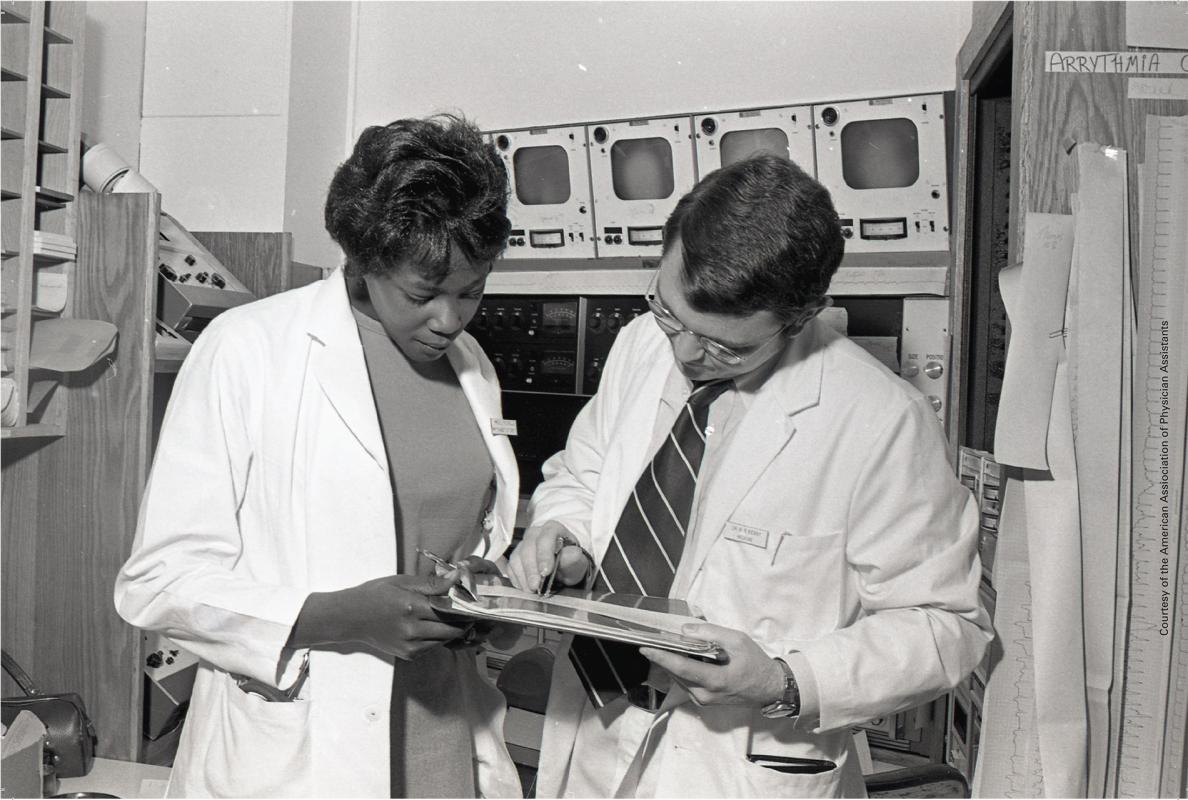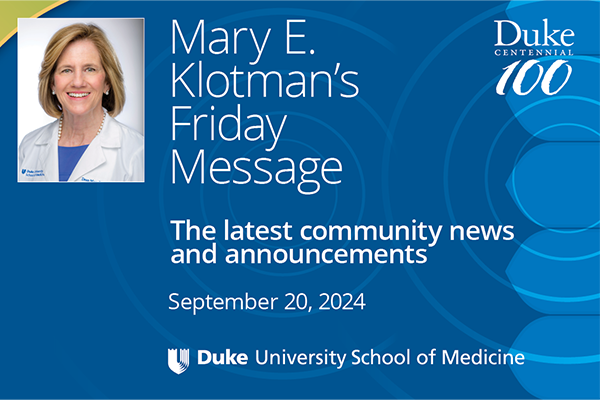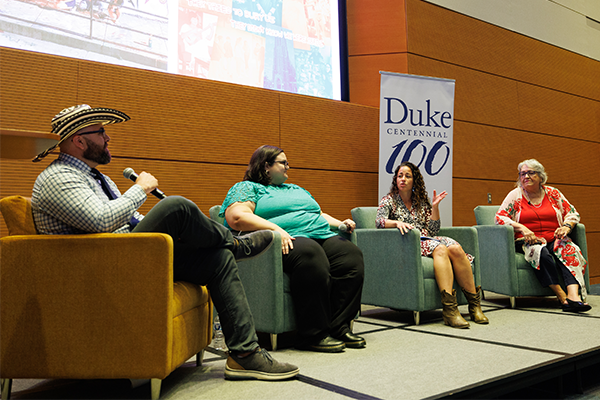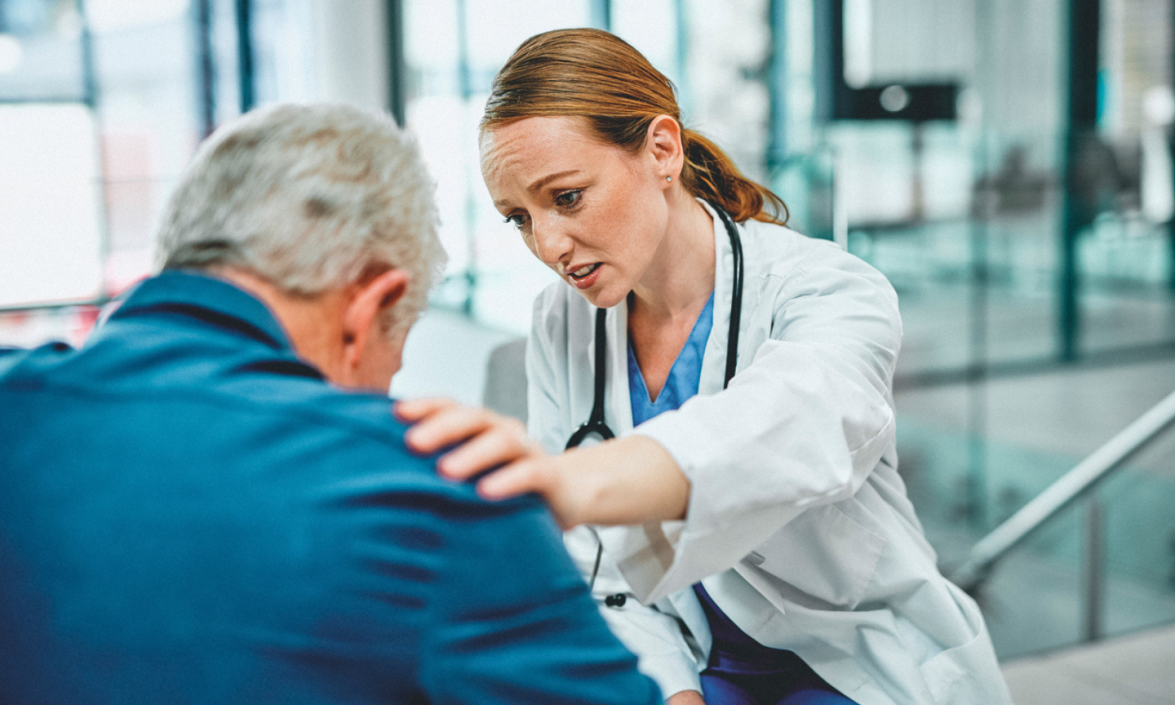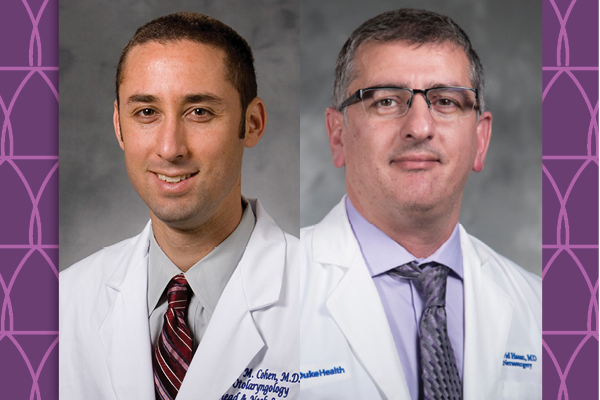EDI Spotlight: Dalia Antunez, MSW
As a leader with the employee resource group, ¡DALHE!, Dalia Antunez is helping to build community and expand professional networks for Duke’s Hispanic/Latiné employees and allies.
Closing in on the Causes of a Dangerous Bleeding Disorder
A new study led by a Duke graduate student points the way toward strategies for developing more targeted and effective treatments for patients suffering from Hereditary hemorrhagic telangiectasia, which can cause serious, even life-threatening, bleeding.
Study Supports the Wisdom of Sleeping on Important Decisions
Research by Allie Sinclair, PhD, and Alison Adcock, MD, PhD, showed that people who waited before making a decision generally made more rational choices.
Exhibit Highlights Duke History, PA Program Pioneer
Joyce Nichols, who was the first woman in the country to become a physician assistant when she graduated from Duke's PA program in 1970, is among the people, events, and institutions highlighted in a Museum of Durham History exhibit marking Duke University's Centennial.
Mary E. Klotman's Friday Message and Updates
Dean Mary Klotman, MD, shares updates on welcoming new students, significant research achievements, prestigious awards, upcoming events, and important health reminders.
Hispanic Heritage Month: Uncovering Latino History in the South
At Duke University School of Medicine’s annual ¡DALHE! Hispanic Heritage Month event, attendees came together to reflect on the often-overlooked history of Latinos in the South.
Mental Health Concerns Are a Huge Part of Primary Care Practice
An examination of millions of patient visits to primary care physicians shows that mental health concerns are second only to musculoskeletal complaints in everyday care. One in nine patients was seeking care primarily because of a mental health concern.
Duke Physician Highlights Positive Ovarian Cancer Clinical Trial Results
Angeles Alvarez Secord, MD, a gynecologic oncologist at Duke Health, shared encouraging new data Sept.
Links Between Health and Place in Durham
A first-of-its-kind study documents Durham neighborhoods with higher levels of structural racism also have higher rates of chronic disease. Duke researchers are expanding their work to help others conduct similar studies in their own cities, and to use that data to inform policy efforts to intervene where it’s needed most.
Amid Conflict, Two Duke Doctors, One Palestinian and One Jewish, Find the Humanity in Medicine
David Hasan, MD, a neurosurgeon, and Seth Cohen, MD, an otolaryngologist and head & neck surgeon, come from different backgrounds. Hasan is Palestinian, Cohen is Jewish. But after the Oct. 7 attack by Hamas in Israel and military response in Gaza by Israel, they both had the same impulse: to help.



